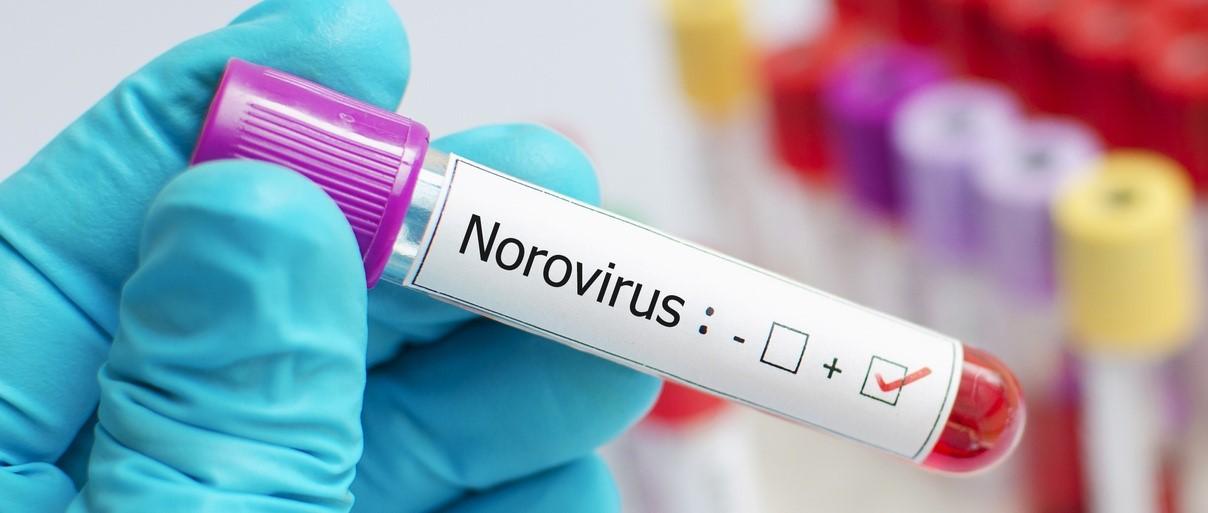
How to deal with gastroenteritis
Peer reviewed by Dr Colin Tidy, MRCGPLast updated by Victoria RawLast updated 19 Dec 2025
Meets Patient’s editorial guidelines
- DownloadDownload
- Share
- Language
- Discussion
Gastroenteritis is an intestinal infection that causes being sick, diarrhoea, abdominal cramps, and other symptoms. These symptoms usually aren't harmful but can be debilitating, so self-care is essential during recovery. Here we look at the best ways to help you recover from gastroenteritis.
In this article:
Continue reading below
What causes gastroenteritis?
Gastroenteritis, sometimes called stomach flu, is commonly caused by noroviruses and adenoviruses, but other viruses can also be responsible. Bacterial gastroenteritis is triggered by common bacteria such as salmonella, E. coli, and campylobacter, and can result from consuming contaminated food or drinks.
Symptoms of gastroenteritis
Symptoms can vary in severity, from a few days of mild tummy upset with vomiting and diarrhoea to severe sickness and diarrhoea for several days. It's mostly harmless, especially if you are otherwise in good health. However, there can be cause for concern if young children, the elderly, pregnant people, and those with compromised immune systems have severe or persistent symptoms.
The most common symptoms are:
Being sick (vomiting).
Diarrhoea.
You may also have abdominal cramps and high temperature (fever).
While it's unpleasant, most people recover in a few days. It's essential to take care of yourself while recovering from gastroenteritis to prevent prolonging or worsening your symptoms.
Continue reading below
How to recover from gastroenteritis
Stay at home and rest
Staying home and resting until you're better are important. Leaving your house jeopardises your own health and that of anyone you come into close contact with, as gastroenteritis is contagious.
You should stay away from people or work until you are 48 hours free of any bouts of vomiting or diarrhoea, to avoid passing it on to others.
Being sick and diarrhoea both cause dehydration, especially if you are unable to keep food and fluids down. Signs of dehydration include dizziness, headaches, and other symptoms that make everyday tasks strenuous and even exhausting.
Overexerting yourself can make you feel worse and slow the recovery period. It can also be unsafe for you to leave the house when you are dehydrated, as it may affect factors such as your decision-making and balance.
Drink plenty of fluids
Repeatedly being sick and having diarrhoea make it difficult to give your body what it needs - fluids being one of them. Whether you are unable to keep fluids down or feel too unwell to drink at all, dehydration makes you feel worse and can cause other symptoms.
Symptoms of mild dehydration include:
Dizziness.
Headaches.
Dry mouth and tongue.
Dark pee.
Tiredness.
If you think you or someone you're caring for is severely dehydrated, you should seek medical advice immediately.
You should drink two to three litres of water daily. If you have gastroenteritis, drink more water than usual or consider using oral rehydration solutions to prevent dehydration. A rough guide for increasing water intake is an extra glass of water following bouts of diarrhoea.
Being sick makes it difficult to keep down fluids and stay hydrated. If you've been sick, wait around 5-10 minutes before drinking again, and start by drinking small amounts every few minutes. This will help your body get used to drinking without overdoing it and causing you to be sick again.
Ease back into eating
You should try to eat as normally as possible. This can be difficult as you may not have an appetite or are still being sick. Adults can handle a day or two without food, but when you start eating again, you should ease yourself back with small, light, plain meals and foods that are easy to digest - such as bread, rice, pasta, and sugar-free cereals. Try to avoid dairy products if you have an upset tummy as they can be more difficult for your body to digest.
The key is to go with your appetite - if you're hungry, try to eat. Even small amounts of food will help your intestinal lining heal and provide the energy to regain your strength and recover. However, if you begin to feel nauseous or are sick, you should lower your food intake.
Here's a guide for eating when you have gastroenteritis.
Even if you stop eating for a few days, you should never stop drinking.
This causes dehydration because you won't replace the fluids lost through being sick, diarrhoea, and sweating if you have a high temperature.
Avoid spreading infection at home
An important part of recovering from gastroenteritis is ensuring it doesn't spread to other people. Hygiene precautions help to prevent others getting sick and you experiencing repeat bouts of gastroenteritis.
Here are some good hygiene practices to keep in mind when you or someone else at home has gastroenteritis:
Stay at home until you haven't vomited or had an episode of diarrhoea for at least 48 hours.
Thoroughly wash your hands with soap and water after using the toilet. Dry your hands properly.
Using disinfectant, clean the toilet and any surfaces that may have been touched, including larger surfaces as well as small surfaces, such as taps and door handles.
Don't share towels.
Don't make or serve food for other people.
Monitor medicines
If you take daily medicines, it's crucial to monitor your intake, as bouts of sickness could mean you're not getting the right dosage.
Generally, if you're sick more than 20 minutes after taking your medicine, it's unlikely you'll need to take more. But to be safe, contact your doctor for advice as all medicines vary with regard to dosage and side-effects.
Certain types of medicines have "sick rules". If this is the case, make sure you have the sick rules written down and let your doctor know you have changed your medicine dose or intake because you have been ill. If you are in doubt, seek advice immediately.
It's better to take paracetamol for pain relief, as ibuprofen can irritate your stomach.
When to call a doctor
Most cases of gastroenteritis clear up after a few days.
Contact your doctor for advice if:
You suspect that you are becoming severely dehydrated.
You have extreme tummy pain.
There is blood in your vomit or poo.
You have a continuous high temperature (fever) lasting more than five days or not responding to paracetamol.
You are older or have an underlying health condition such as epilepsy, diabetes, or kidney disease.
You are pregnant.
Your immune system is weakened by long-term medical treatments, such as chemotherapy.
Patient picks for Gastroenteritis

Digestive health
What to eat when you have gastroenteritis
Should you eat with gastroenteritis or avoid food altogether? While it was once standard advice to starve when you have this stomach infection, health recommendations have changed in recent years. Experts now believe you should be guided by how hungry you feel. But, when it comes to gastroenteritis, there are certain foods you should keep away from.
by Amberley Davis

Digestive health
Norovirus - when to see a doctor
As winter approaches, viruses spread between people more easily. If you have stomach bug symptoms, there's a good chance you've caught norovirus - one of the most common and contagious viruses in the UK. But at what point does norovirus become serious enough to see a doctor?
by Victoria Raw
Continue reading below
Article history
The information on this page is peer reviewed by qualified clinicians.
Next review due: 19 Dec 2029
19 Dec 2025 | Latest version
5 Apr 2023 | Originally published
Authored by:
Matt Binny

Ask, share, connect.
Browse discussions, ask questions, and share experiences across hundreds of health topics.

Feeling unwell?
Assess your symptoms online for free
Sign up to the Patient newsletter
Your weekly dose of clear, trustworthy health advice - written to help you feel informed, confident and in control.
By subscribing you accept our Privacy Policy. You can unsubscribe at any time. We never sell your data.